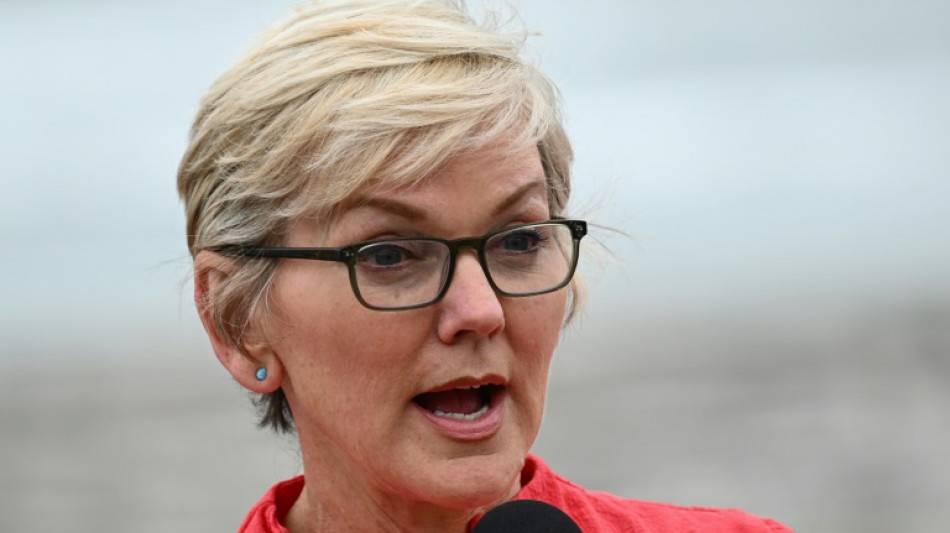
-
 Putin evokes WWII victory to rally Russia behind Ukraine offensive
Putin evokes WWII victory to rally Russia behind Ukraine offensive
-
China exports beat forecasts ahead of US tariff talks

-
 Leo XIV, the 'Latin Yankee', to celebrate first mass as pope
Leo XIV, the 'Latin Yankee', to celebrate first mass as pope
-
Most stocks lifted by hopes for US-China talks after UK deal

-
 IPL suspended indefinitely over India-Pakistan conflict: reports
IPL suspended indefinitely over India-Pakistan conflict: reports
-
German lender Commerzbank's profits jump as it fends off UniCredit

-
 Rare bone-eroding disease ruining lives in Kenya's poorest county
Rare bone-eroding disease ruining lives in Kenya's poorest county
-
India says repulsed fresh Pakistan attacks as de-escalation efforts grow

-
 Zhao's historic snooker title sparks talk of China world domination
Zhao's historic snooker title sparks talk of China world domination
-
'High expectations': EU looks to Merz for boost in tough times

-
 Poisoned guests rarely invited before deadly mushroom lunch, Australia trial hears
Poisoned guests rarely invited before deadly mushroom lunch, Australia trial hears
-
China sales to US slump even as exports beat forecasts

-
 Indian cricket to make 'final decision' on IPL over Pakistan conflict
Indian cricket to make 'final decision' on IPL over Pakistan conflict
-
Dethroned Bundesliga champions Leverkusen face uncertain future

-
 China can play hardball at looming trade talks with US: analysts
China can play hardball at looming trade talks with US: analysts
-
French monuments in trouble while PSG prepare for Champions League final

-
 Newcastle face Chelsea in top five showdown, Alexander-Arnold in spotlight
Newcastle face Chelsea in top five showdown, Alexander-Arnold in spotlight
-
Flick's Barca must show 'hunger' in crunch Liga Clasico

-
 Clasico the last chance saloon for Ancelotti's Real Madrid
Clasico the last chance saloon for Ancelotti's Real Madrid
-
Timberwolves overpower Warriors to level series

-
 Chinese fabric exporters anxious for US trade patch-up
Chinese fabric exporters anxious for US trade patch-up
-
Putin gears up to host world leaders at lavish army parade

-
 Nearing 100, Malaysian ex-PM Mahathir blasts 'old world' Trump
Nearing 100, Malaysian ex-PM Mahathir blasts 'old world' Trump
-
Leo XIV, first US pope, to celebrate first mass as pontiff

-
 Asian stocks lifted by hopes for US-China talks after UK deal
Asian stocks lifted by hopes for US-China talks after UK deal
-
Former head of crypto platform Celsius sentenced 12 years

-
 Ex-model testifies in NY court that Weinstein assaulted her at 16
Ex-model testifies in NY court that Weinstein assaulted her at 16
-
Nestlé and OMP Showcase Approach to Future-Ready Supply Chain at Gartner Supply Chain Symposium/Xpo in Barcelona

-
 Genflow Biosciences PLC Announces Share Subscription, Director's Dealing and Update
Genflow Biosciences PLC Announces Share Subscription, Director's Dealing and Update
-
Argo Blockchain PLC Announces 2024 Annual Results and Restoration of Listing

-
 'Great honor': world leaders welcome first US pope
'Great honor': world leaders welcome first US pope
-
Pacquiao to un-retire and fight Barrios for welterweight title: report

-
 Trump unveils UK trade deal, first since tariff blitz
Trump unveils UK trade deal, first since tariff blitz
-
Man Utd one step away from Europa League glory despite horror season

-
 Jeeno shines on greens to grab LPGA lead at Liberty National
Jeeno shines on greens to grab LPGA lead at Liberty National
-
Mitchell fires PGA career-low 61 to grab Truist lead

-
 AI tool uses selfies to predict biological age and cancer survival
AI tool uses selfies to predict biological age and cancer survival
-
Extremely online new pope unafraid to talk politics

-
 Postecoglou hits back as Spurs reach Europa League final
Postecoglou hits back as Spurs reach Europa League final
-
Chelsea ease into Conference League final against Betis

-
 Pope Leo XIV: Soft-spoken American spent decades amid poor in Peru
Pope Leo XIV: Soft-spoken American spent decades amid poor in Peru
-
First US pope shared articles critical of Trump, Vance

-
 'Inexcusable' - NBA champs Boston in trouble after letting big leads slip
'Inexcusable' - NBA champs Boston in trouble after letting big leads slip
-
US automakers blast Trump's UK trade deal

-
 Stocks mostly rise as US-UK unveil trade deal
Stocks mostly rise as US-UK unveil trade deal
-
Trump presses Russia for unconditional 30-day Ukraine ceasefire

-
 Anything but Europa League glory 'means nothing' for Man Utd: Amorim
Anything but Europa League glory 'means nothing' for Man Utd: Amorim
-
'Inexcuseable' - NBA champs Boston in trouble after letting big leads slip

-
 Pope Leo 'fell in love with Peru'and ceviche: Peru bishop
Pope Leo 'fell in love with Peru'and ceviche: Peru bishop
-
Pakistan's T20 cricket league moved to UAE over India conflict


US to invest $1.2 bn on facilities to pull carbon from air
The US government said Friday it will spend up to $1.2 billion for two pioneering facilities to vacuum carbon out of the air, a historic gamble on a still developing technology to combat global warming that is criticized by some experts.
The two projects -- in Texas and Louisiana -- each aim to eliminate one million tons of carbon dioxide per year, equivalent in total to the annual emissions of 445,000 gas-powered cars.
It is "the world's largest investment in engineered carbon removal in history," the Energy Department said in a statement.
"Cutting back on our carbon emissions alone won't reverse the growing impacts of climate change," Energy Secretary Jennifer Granholm said in the statement. "We also need to remove the CO2 that we've already put in the atmosphere."
Direct Air Capture (DAC) techniques -- also known as Carbon Dioxide Removal (CDR) -- focus on that CO2 emitted into the air, which is helping to fuel climate change and extreme weather.
Each of the projects will remove 250 times more CO2 from the air than the largest carbon capture site currently in operation, the Energy Department said.
The UN's International Panel on Climate Change (IPCC) considers capturing carbon dioxide directly from the atmosphere one of the methods necessary to combat global warming.
But the sector is still marginal -- there are just 27 existing carbon capture sites commissioned worldwide, according to the International Energy Agency, though at least 130 projects are under development.
And some experts worry that use of the technology will be a pretext for continuing to emit greenhouse gases, rather than switching more quickly to clean energies.
Direct capture "requires a lot of electricity for extracting CO2 from the air and compressing it for pipes," Stanford University professor Mark Jacobson told AFP.
"Even in the best case, where the electricity is renewable, that renewable electricity is then prevented from replacing a fossil electricity source on the grid, such as coal or gas."
That means such technology is nothing more than a "gimmick," he said, adding: "It will only delay our solution to the climate problem."
- Storing CO2 underground -
US non-profit Battelle is the prime contractor on the Louisiana project, which will inject captured CO2 for storage deep underground.
It will partner with another American company, Heirloom, and the Swiss firm Climeworks, already a sector leader that operates a plant in Iceland with an annual capacity to capture 4,000 tons of CO2 from the air.
The Texas project will be led by the American company Occidental and other partners, including Carbon Engineering. It could be developed to eliminate up to 30 million tons of CO2 per year, according to a statement from Occidental.
"The rocks in the subsoil of Louisiana and Texas are sedimentary rocks, very different from Icelandic basalts, but they are perfectly viable for storing CO2," Helene Pilorge, an associate researcher at the University of Pennsylvania studying carbon capture, told AFP.
The two projects should create 4,800 jobs, according to the energy department. No start date is yet confirmed for either.
They will be funded by President Joe Biden's major infrastructure bill passed in 2021.
The Energy Department previously announced plans to invest in four projects to the tune of $3.5 billion.
Direct capture differs from carbon capture and storage (CCS) systems at source, such as factory chimneys, which prevent additional emissions from reaching the atmosphere.
In May, the Biden administration announced a plan to reduce CO2 emissions from gas-fired and coal-fired power plants, focusing in particular on this second technique.
O.Karlsson--AMWN


